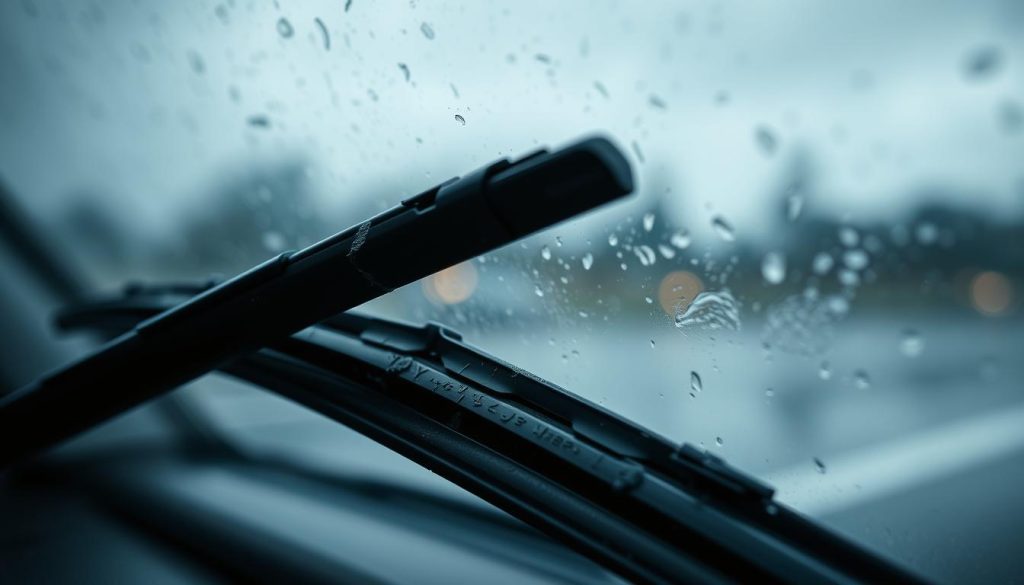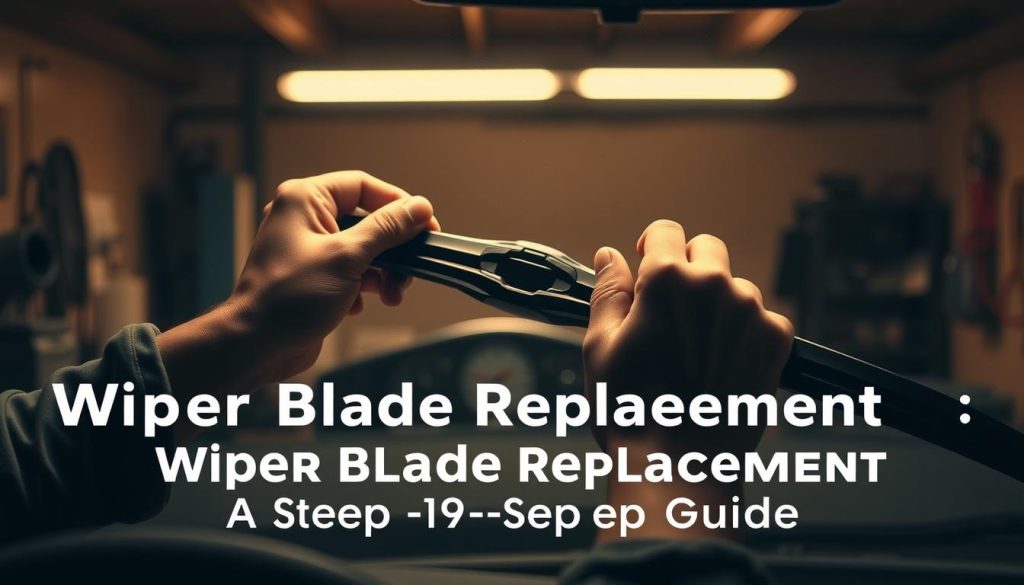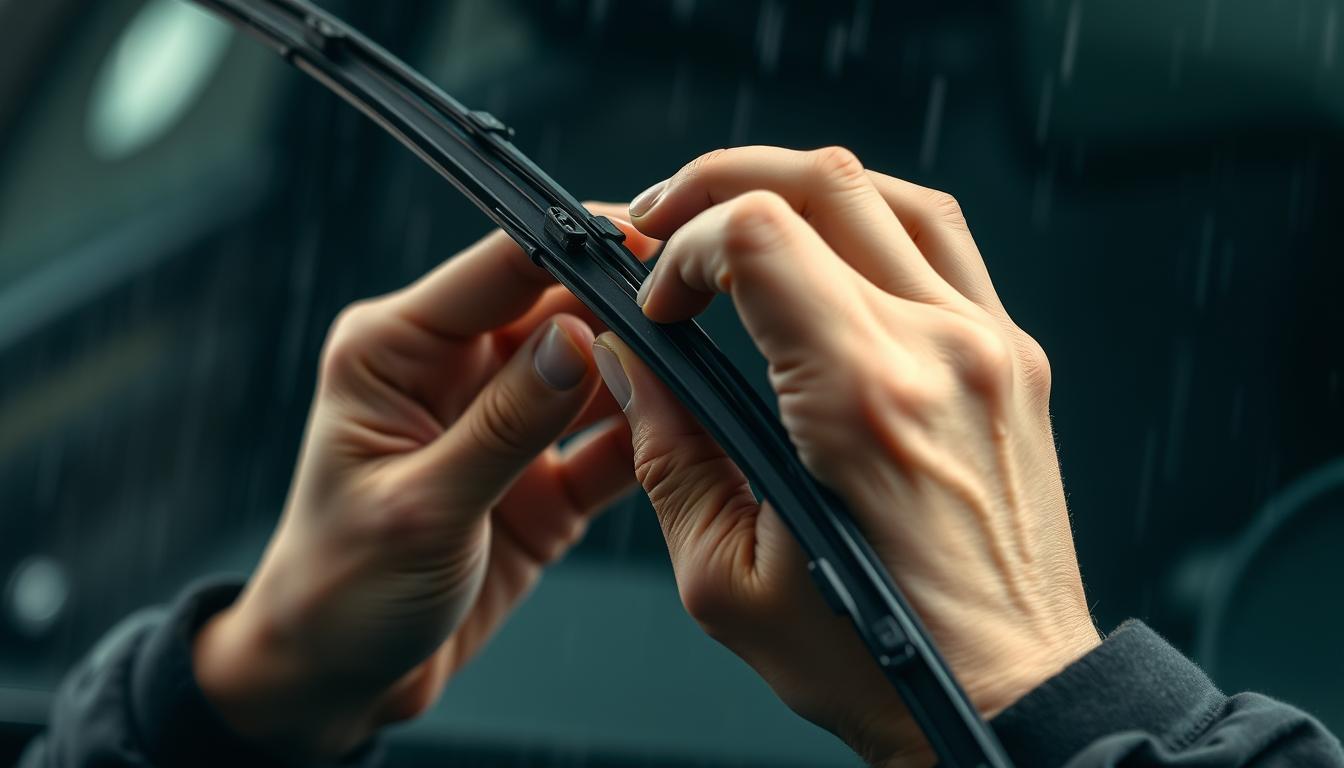Driving in heavy rain can turn a simple commute into a risky challenge. Your ability to see the road clearly depends on well-maintained equipment, and nothing impacts visibility during storms more than your vehicle’s wipers. Over time, exposure to harsh weather, UV rays, and debris wears them down, leaving streaks or gaps that obscure your view.
Most drivers don’t realize their wipers need attention until it’s too late. While these components typically last 6–12 months, factors like climate and usage can shorten their lifespan. If you notice squeaking, skipping, or reduced clarity during light rain, it’s time to act. Delaying replacements risks your safety and strains your windshield.
At Heaven Automotive, we prioritize your security on the road. Our team offers expert assessments and installations to ensure optimal performance. Whether you’re navigating summer thunderstorms or winter slush, functional wipers are non-negotiable for maintaining visibility. Let’s explore how to spot wear early and why proactive care matters.
Key Takeaways
- Wiper durability varies based on climate, usage frequency, and material quality.
- Streaks, noise, or poor clearing during rain signal immediate replacement needs.
- Faulty wipers reduce reaction time, increasing accident risks in bad weather.
- Professional inspections ensure proper alignment and windshield contact.
- Regular cleaning extends wiper life and prevents premature damage.
Recognizing the Signs of Wiper Blade Wear
Your car’s ability to handle storms depends on components you might rarely think about. Early detection of issues ensures you’re never caught off guard when skies darken. Let’s explore three key indicators that demand attention.

Observing Streaks and Smudges on the Windshield
Clean glass should stay clear after each wipe. If you see hazy lines or rubber marks, the contact between the component and windshield has weakened. Bent frames or hardened edges create these smudges, reducing performance during drizzle or heavy downpours.
Identifying Squeaking Noises and Unusual Sounds
A quiet swipe means everything’s working smoothly. Chirps or grinding noises often mean debris stuck in the mechanism or cracked rubber. We recommend checking for leaves first – sometimes a quick clean solves the problem. Persistent sounds? That’s when wear becomes the likely culprit.
Impact of Extreme Weather on Performance
Summer heat bakes parking lots, warping materials until they lose flexibility. Winter freezes turn them stiff, like trying to wipe with cardboard. Both scenarios strain weather-handling abilities. Our technicians assess how seasonal changes affect your system’s performance, distinguishing temporary quirks from permanent damage.
At Heaven Automotive, we’ve seen how minor issues escalate during harsh weather. Don’t wait until a storm tests your limits – schedule a free inspection today. Our team spots early wear patterns others miss, keeping your view crystal clear year-round.
Wiper Blade Replacement: A Step-by-Step Guide
Maintaining clear visibility starts with simple maintenance tasks you can handle in minutes. Our guide walks you through the process while highlighting when professional help might save time and ensure precision.

Preparing Your Vehicle for Blade Change
Start by turning off your car completely. This prevents accidental activation while working. Move the wiper control to the “off” position – most models keep the arms upright in this mode. Lift them gently until they lock vertically. Never force them; spring tension should hold them steady.
Removing the Old Wiper Blades Safely
Look for the small release tab where the component connects to the arm. Press it firmly while sliding the piece downward. Some vehicles use side pins or hook slots instead. If resistance occurs, double-check your model’s connection type. Avoid yanking – damaged arms cost more to fix than new parts.
Securing and Testing the New Blades
Align the fresh unit with the arm’s hook or pin. Push upward until you hear a distinct click. Tug lightly to confirm it’s locked. Lower the arms slowly onto the glass. Test functionality using your car’s mist setting first. Watch for smooth motion and full windshield coverage without gaps.
While many drivers enjoy DIY projects, others prefer our technicians’ speed and expertise. We stock compatible parts for over 95% of vehicle makes and handle installations in under 15 minutes. Rain checks shouldn’t be stressful – let’s keep your view sharp.
Different Types of Windshield Wiper Connectors
Your car’s ability to clear rain and debris relies on a simple yet critical detail: the connector that links the wiper to its arm. Choosing the right design ensures smooth operation and full windshield coverage. Let’s break down the three main styles you’ll encounter.
Hook Slot (J-hook/U-hook) Connectors
These are the go-to choice for most vehicles, including sedans and SUVs. The J- or U-shaped metal hook slides into a matching slot on the component. Their straightforward design makes swaps quick – perfect for drivers who prefer DIY maintenance. Modern beam-style models often use this system due to its secure fit.
Pinch Tab and Pinch Tab Button Connectors
Need extra security? These feature two tabs you squeeze to release the part. Some versions add a button that locks the connection in place. While common in trucks and older models, they require precise alignment. Our team checks the size and angle to prevent wobbling or detachment during storms.
Pin Arm (Side Pin) Connectors
European brands and luxury vehicles often use this style. A small pin on the arm slots into a hole on the component. It’s trickier to install without practice – push too hard, and you risk bending the mechanism. We match the beam profile and pin placement to your car’s specs for seamless performance.
At Heaven Automotive, we decode connector types so you don’t have to. Whether your ride uses hooks, tabs, or pins, we’ll find parts that fit your windshield system perfectly. Stop guessing about size or compatibility – our experts handle the details while you enjoy clearer views.
Conclusion
Clear vision during storms isn’t just about good reflexes – it starts with components many drivers overlook. While most last 6-12 months, harsh sunlight or winter snow can accelerate wear faster than you’d expect.
We’ve shown how streaks, noise, and poor clearing signal it’s time for action. Whether you tackle the job yourself or want expert help, matching the right size and beam design to your vehicle makes all the difference. Properly fitted units glide smoothly, eliminating blind spots during downpours.
Our team at Heaven Automotive simplifies this critical maintenance task. We stock parts for every connector type and handle installations while you wait. Don’t gamble with cracked rubber or uneven pressure – schedule a service today and restore your windshield’s clarity in minutes.
When weather turns fierce, trust professionals who prioritize your safety. Let’s ensure every swipe counts.

